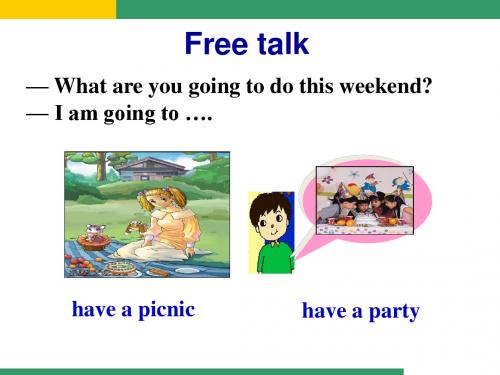七年级英语下册 Module 4 Life in the future未来科技的研究文章素材
- 格式:doc
- 大小:22.00 KB
- 文档页数:1



Module4 Life in the futureUnit 1 Everyone will study at home.本单元以学校为题材,通过对未来的描述,掌握一般将来时的表达方式,同时表达自己对未来的设想,充分发挥想象力,通过对美好未来的憧憬,培养乐观向上的精神。
一.教材分析1.通过对第四模块的学习,学生已经学会使用be going to do 表示计划,安排作某事。
对一般将来时态有了一定的了解。
2.本模块以讲诉学校生活入手,对未来生活展开丰富的想象。
贴近学生生活,大部分学生会对本课产生浓厚的兴趣。
二.教学目标1.知识技能目标(1)词汇能够准确读出并写出cable TV, calculator, cell phone, computer, email, Internet, satellite, climate, education, technology, transport, machine,comfortable, rough, strong, expensive, smooth, dull 等单词;能准确读出technology 等词语。
(2)语法学习一般将来时will do的用法,(3) 技能能通过对本课对话的学习,使学生学会用将来时态表达对未来的设想。
2.情感目标用丰富的想象力预测未来的学校生活,培养乐观向上的精神。
3. 教学重点和难点一般将来时的用法和用一般将来时表达对未来的设想。
三.教学过程Step 1. lead-in:活动1:Ask and answer“What can you see in our classroom?” Ask the students to use the words to d escribe the classroom.[设计意图]:本活动为的是解决对话中出现的词汇障碍,为听对话作好准备,同时,通过对话题的讨论激活学生的背景知识,为听力理解做知识方面的铺垫。



外研版英语七年级(下)Module 4 .Life in the future一.重点短语句型归纳。
1.in the future 将来in future 从今以后2.study at home 在家学习3. on the Internet 在网络上4.be able to 能、会5 .free time 空闲时间 6.as well 也﹙肯定句句末,前面无逗号﹚e true 实现8. all year﹙around﹚整年9.by email 通过电子邮件10.ask a question 问问题11.the change of weather天气的变化12.do light and easy work 做轻松简单的工作13、chalk、paper为不可数名词 a piece of+ chalk/paper 一支粉笔/一张纸14、in twenty years’time= in twenty years 在二十年后in +段时间,句子用一般将来时,用How soon提问15、use ... to do sth 使用...做某事use computer to get information16、get information on the Internet 从网上获得信息17. on the Internet 在网上18、by Internet 通过网络by telephone 通过电话方式by +交通工具单数乘坐by bus 乘公共汽车19、be able to do=can 能够做…20、not ...any more=no...more 不再...21、answer one’s question 回答某人的问题the answer to the question 问题的答案22、need to do sth 需要做某事need sth 需要…此时need是实义动词,有形式变need 做情态动词用时,后接动词原形,无形式变化。
2019-2020年七年级英语下册 Module 4 Life in the future全模块教案外研版一、教学内容分析本模块以未来的教室及学习为切入点,谈论将来我们生活的各个方面,学生较为有兴趣,便于展开活动。
Unit1的主要内容是涉及一些有关于教室和科学方面的名词,一篇出现了将来时的听力、一段有关未来教室的对话以及相关的几个训练活动,在这个过程中学习和掌握一般将来时WILL+动词原形的陈述,一般疑问句及问答,及否定句。
二、学生情况分析本模块以学生心目中的未来教室为话题,这与学生的现实生活密切相关,他们有话可说,乐于参与课堂活动,而涉及的语法项目是一般将来时will 的陈述句,否定句,一般疑问句及回答,动词不用任何的变化,学生应该较为容易掌握。
三、教学目标1.能够正确理解有关未来学校的对话。
2.能够听懂有关未来生活的简单对话。
3.能够用一般疑问句正确问答有关将来的信息。
四、教学重点和难点1.词汇的正确运用。
2.一般将来时will 的陈述句,否定句,一般疑问句及回答五、教学策略任务型教学、自主学习、合作学习六、教学手段磁带,图片七、教学过程Step 1 . Everyday EnglishWhat day is it today?What do you do today?What are you going to do tomorrow?……Step2.Warm-upT: What will you do at this weekend?S: I will do my homework at this weekend..T: Will you play the piano this afternoon?S: Yes, I will /No, I will not.………Like this, ask the students to work in pairs to review the future tense.Step2. PresentationT: What will you do at this weekend?Help the students answer: I will play games at this weekend.(用be going to+do引出will+do,使同学们在很自然的复习语境中导入到新课)Ask the students to work in pairs to practice will+do.Step3.Vocabulary(1) Use the pictures to teach the new words :cable, , cell phone, , paper, ruler, satellite TV.(2)guessing games :What do you use to learn math and science ? calculatorWhat do I use to teach English? chalk(3)Let students repeat the words loudly.(创设情景教单词,使学生自然地掌握了单词的读音和用法。
教案设计:Module 4 Life in the futureUnit 1 Everyone will study at home.课型:Listening and speaking教学目标:1. 知识目标:(1)To understand conversations about future schools(2)To process information of future life in the listening material(3)To talk about the prospe ct of one’s own school(4)Key vocabulary: cable TV, calculator, cell phone, chalk, Internet, satellite, everyone, no one (5)Key structures: will + v.原形;2. 能力目标: To understand conversations involving schools in the future. Improve the students’ listening ability.3. 德育目标: Help students know the schools in the future.教学重、难点:1. 教学重点(1) 过未来学校话题训练学生的听、说、读、写能力,掌握使用简单的一般将来时的句子来表达未来的事情。
(2) 了解一般将来时的基本表达。
2. 教学重、难点:一般将来时的表达。
教学方法:Communicative教学用具:Multi-Media (or Tape recorder, OHP)教学过程:Step1 Warming up and lead in:1. Ask the students what words they can use to describe our classroom: cable TV, blackboard, national flag, clock, light, desk, picture, chair.2. Read through the words in the box and make sure that the students understand them all. (Activity 1)3. Ask the students to describe the classroom they are in, using the words in the box and any others which are appropriate.4. Ask the students to do the task individually, then check with a partner.设计意图:通过图片观察未来,逐步引入主题,并导入部分新单词和词组。
未来科技的研究
未来科技给人类留下了无限的想象空间和科研前景。
因为,人类到目前为止,对自然科学的认识,恐怕连整个自然奥秘的亿分之一也没有,所以,未来科技,并不是指虚无缥缈的猜想和臆想,而是硬实需要人类去研究和发明创造的科学技术,只是,我们目前还没有达到那样的先进水平而已。
其实,人类科学技术发展是个漫长的历程。
没有人怀疑,近百年来,人类科技的发展是史前多少万年人类发明的总和,按照这样的发展规律,再过50年、100年,科技发展是什么样子?包括汽车、住房、航空、航天、电视、网络等等,等等,稍有文化的人,自然都有个基本的想象和判断。
我们相信科学,更相信我们的科学还需要不断的发展,而远没有把世界变成无所不知,科学--就是不断把未知变为已知,这是我们人类伟大的真谛,也是弘扬探索精神之目的。
无所不知与无知其实都不存在,但是,无所不知与无知的思想意识,在我们现实的科学家和专家群体中都普通存在。
就这两种意识而言,我认为,无所不知,是聪明和智慧的最高境界,也是科学的顶峰。
无知,不仅仅是没有文化,也不是知识极度贫乏,其实是用已知的知识随意否定和妄下结论的狂妄自大。
那么,现在人类正在进行的科研项目非常多,这些项目还未被人类完成发明、创造和掌握使用,这些是否属于未来科技?当然是未来科技!今天晚上下班睡觉,明天上班后9点钟发明出来的,也是未来科技!
1。